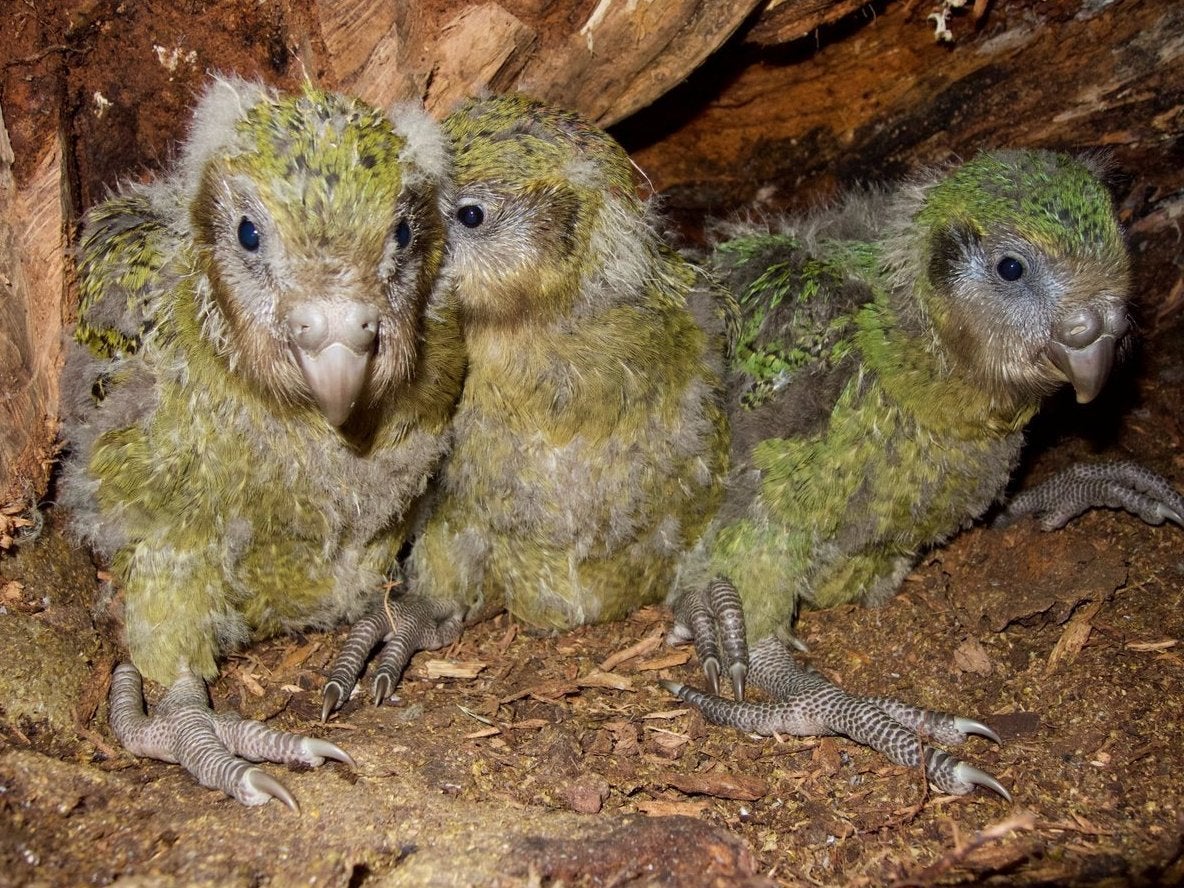Critically endangered New Zealand kakapo population boosted by record number of chicks
World’s heaviest parrot species is undergoing focused recovery programme

Your support helps us to tell the story
From reproductive rights to climate change to Big Tech, The Independent is on the ground when the story is developing. Whether it's investigating the financials of Elon Musk's pro-Trump PAC or producing our latest documentary, 'The A Word', which shines a light on the American women fighting for reproductive rights, we know how important it is to parse out the facts from the messaging.
At such a critical moment in US history, we need reporters on the ground. Your donation allows us to keep sending journalists to speak to both sides of the story.
The Independent is trusted by Americans across the entire political spectrum. And unlike many other quality news outlets, we choose not to lock Americans out of our reporting and analysis with paywalls. We believe quality journalism should be available to everyone, paid for by those who can afford it.
Your support makes all the difference.New Zealand’s critically endangered ground-dwelling parrot the kakapo, has hatched in record numbers during an unusually long breeding season, bringing hope the species, which was almost wiped out, can make a long-term recovery.
Over 70 chicks have been born – dramatically increasing the current adult population of the birds which was known to stand at 147.
While not all the chicks are expected to make it to adulthood, the figures are encouraging, according to New Zealand’s Department of Conservation (DoC).
“It’s been going on for a long time...we had our first mating before Christmas, the first chick hatched on the 30 January, the earliest a chick had ever hatched,” Andrew Digby, a science advisor on the DoC’s Kakapo Recovery Programme, told Radio New Zealand
Kakapo are the world’s heaviest species of parrot, with females weighing around 1.4 kgs (3.1 pounds) and males 2.2 kgs (4.8 pounds).
Before human settlement the bird was the third most common bird on New Zealand. But when the Maori people landed about 700 years ago, the clearing of vegetation and the introduction of rats significantly reduced the population of the birds.
The situation was dramatically worsened by the arrival of Europeans who in the early 19th Century brought more predators including domestic cats, black rats and stoats.
By the end of the century, recognising the kakapo population was severely threatened, efforts were made to protect the species, including the founding of an island nature reserve. The move had limited success, and the species was decimated across New Zealand. By the 1970s naturalists were uncertain whether the species had become extinct or not.
After finding a number of the birds on small islands in the 1980s, in 1995, the Kakapo Recovery Programme was established, and used four small predator-free islands to help the species recover.
Digby told Radio New Zealand that the young chicks were still quite uncoordinated and conservation staff were training them to get used to exploring so they can eventually climb 30 metres (90 feet) trees on dedicated island sanctuaries.
“Those sort of skills and the balance and learning how to cope with the New Zealand bush is quite a big skill,” he said, adding even the chicks that were now two months old were uncoordinated.
“When they’re at this stage...they look pretty cute, they’re like bumbling puppies at the moment.”
Join our commenting forum
Join thought-provoking conversations, follow other Independent readers and see their replies
Comments